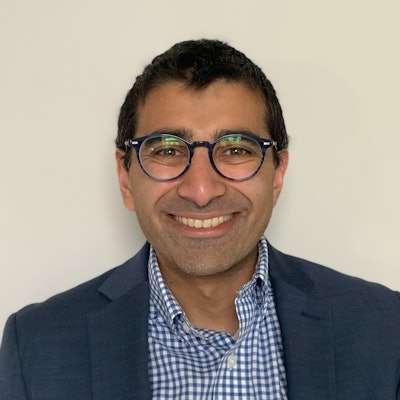The Institute for College Access and Success (TICAS) has released its latest policy recommendations to make postsecondary education affordable and completable for all students.
“It encompasses things we think are possible to get across the finish line now, but also a broad sweep of things needed over time to make progress as a nation to reduce racial and economic disparities across higher education,” said Sameer Gadkaree, TICAS president and CEO.
Recommendations include doubling the maximum Pell Grant, reforming the student loan system to protect borrowers, and ensuring that public benefit programs, like the Supplemental Nutrition Assistance Program (SNAP) or Temporary Assistance for Needy Families (TANF), are reformed to support a student’s journey through higher education.
 Sameer Gadkaree, TICAS president and CEO.
Sameer Gadkaree, TICAS president and CEO.
The consequences of not making these changes to the higher education system will impact the American economy for years to come, he said.
“We count on our higher education system to help us get the professionals we need to have a vibrant economy,” said Gadkaree. “If we don’t make investments in making the postsecondary education system better, more equitable, more accessible, and if we don’t support [these students] to completion, we’re not going to be able to achieve that goal.”
Dr. Frank Fernandez, an associate professor of higher education administration and policy at the University of Florida, called the TICAS's recommendations “ambitious.”
“It’s been really cool to see how TICAS acknowledges how so many things are related — affordability, basic needs, addressing food insecurity and not just loans,” said Fernandez. “Can students get childcare, or food? Can they have healthcare? Because you can’t have student success without those things.”
The 2024-25 maximum Pell Grant covers just 26% of the costs of attending college. Even after receiving aid like the Pell Grant, students from low-income backgrounds are still turning to loans to cover the loose ends. TICAS found that students who receive Pell Grants often end up with $2,000 more debt after college than those who did not receive a Pell Grant.
Which is why TICAS doesn’t just recommend doubling the Pell Grant but also expanding access to the grant and restoring the automatic inflation adjustment the grant had before, which helped stretch the power of its purchasing dollars.
“Those dollars just don’t go as far when inflation is eating away at them,” said Fernandez, noting how inflation negatively impacts both students and institutions who find themselves strapped for resources. “Institutions are split, advocating for the students, faculty and staff and even for themselves.”
 Dr. Frank Fernandez, associate professor of higher education administration and policy at the University of Florida.
Dr. Frank Fernandez, associate professor of higher education administration and policy at the University of Florida.
The agenda also addresses the over 40 million Americans that have started but not completed college. Getting those students back into a postsecondary program and across the finish line will require more than just covering the cost of tuition, said Gadkaree. Instead, he said, state and federal policymakers should look to the programs currently in place across the U.S. that are helping students complete.
Comprehensive approaches to student success (CASS) programs offer dedicated counseling, incremental financial support, and wraparound coverage for students’ basic needs. These programs, like Accelerated Study in Associate Programs in the City University of New York (CUNY) system, and One Million Degrees working with City Colleges of Chicago, have been proven to move students successfully through their academic programs. Directing funding toward CASS can be a “legitimate federal policy tool,” said Gadkaree.
TICAS recommends that more funding be used to connect stopped out students with the options available to them, if they return to college, and the economic benefits that completion can offer.
“We think that we can’t be successful in closing and addressing racial and economic disparities in the higher education system without working on all these fronts,” said Gadkaree. “Ultimately, the underlying reason we’ve assembled this agenda is there’s unfortunately no one or two things that are powerful enough to achieve this goal by themselves. What you see here is, in each area, we have a few threads that are ripe to be carried forward.”
Liann Herder can be reached at [email protected].

















